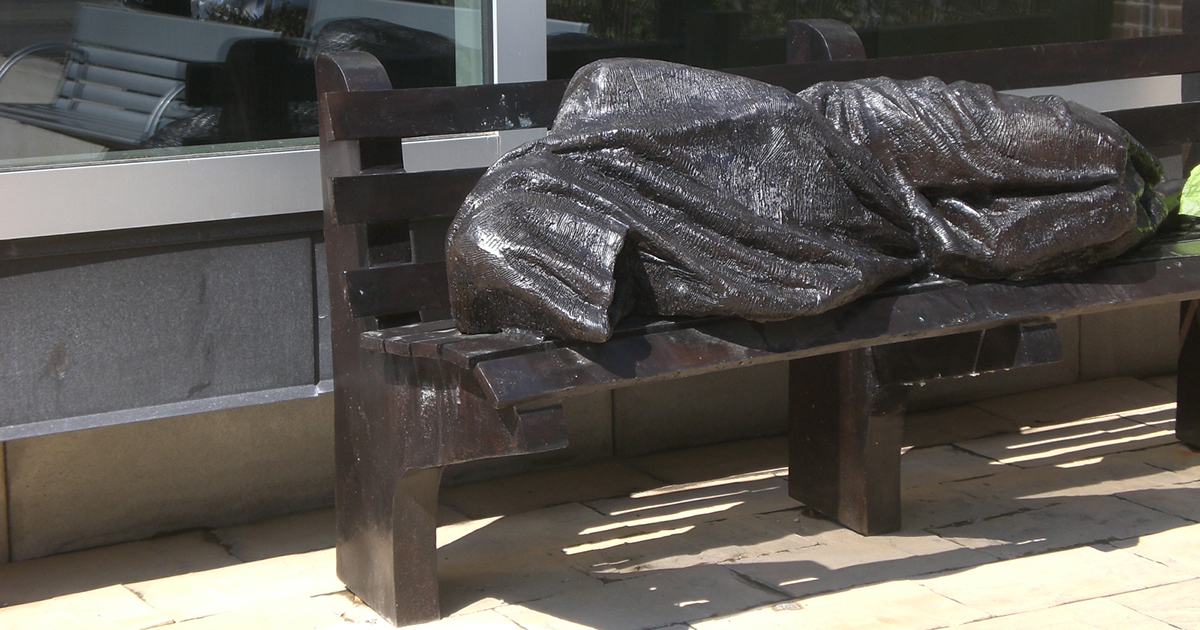Reflecting the ongoing commitment of the Anglican Church of Canada to address the issues of homelessness and affordable housing, a group of Anglican priests and deacons attended the fifth annual National Conference on Ending Homelessness (NCEH) in Winnipeg from Oct. 25-27.
Ryan Weston, lead animator of Public Witness for Social and Ecological Justice, led an Anglican delegation that included three priests from the Diocese of Rupert’s Land—the Revs. Gwen McAllister, Canon Henry Falconer, and Paul Lampman—and two deacons from the Diocese of Toronto, Michael Shapcott and the Rev. Christian Harvey.
More than 1,000 people registered for the conference, which is organized by the Canadian Alliance to End Homelessness. It featured an opening half-day symposium on Indigenous homelessness issues and a variety of other workshops and academic presentations.
Attending his third NCEH, Harvey was particularly struck by the Indigenous speakers at the symposium.
“One of the things that really stuck out to me is just their boldness is saying how important reconnection to Indigenous spirituality is to ending Indigenous homelessness, which I think is a really fascinating angle at a conference like this where spirituality tends not to get much of a focus,” he said.
Harvey is currently a deacon and director of Warming Room Community Ministries, a program of St. John’s Anglican Church in Peterborough that provides shelter to those who cannot or will not use other shelters in town. The church also runs a drop-in centre providing warm meals, as well as the Home Program to help those who suffer from chronic homelessness.
Lampman, who serves as parish priest at the Parish Church of Saint Luke in Winnipeg, attended two of 66 concurrent workshops at the NCEH. Each session focused on the importance of reconnecting Indigenous people with their elders and their spiritual path, with one session focused on helping prison inmates reconnect with the sacred.
“My experience was overwhelmingly positive,” Lampman said. “It was a real honour to be part of this group of incredibly smart people, all working hard to change the lives of people. The focus on reconciliation with our Indigenous sisters and brothers was very powerful.”
In Winnipeg, the Church of Saint Luke has worked together with two United Church congregations—Fort Rouge and Augustine—to establish the affordable housing complex Fort Rouge Ecumenical Apartments, which since 2015 has been managed by Manitoba Housing.
The parish also runs a morning drop-in offering fellowship, a hot meal, used clothing, toiletries, and a $5 gift card for groceries to anyone who comes through their doors, along with counselling and some advocacy and referral to services.
In contrast to Lampman, McAllister—currently rector at St. Matthew’s Anglican Church in Winnipeg, which recently gave up ownership over its building to turn it into a smaller church and accommodate 27 units of affordable housing—was more critical of the NCEH.
“I was admittedly put off by the exaggerated professionalism and the expensive setting of the conference; it served to emphasize the distance between those with ‘lived experience’ who were invited to the conference and professionals working in non-profit and government fields,” McAllister said. “I actually felt discouraged and alienated by that atmosphere. However, I experienced some wonderful and inspiring sessions at the conference.”
Among the sessions she appreciated were “Can You Hear Me Now?”, a presentation by women with lived experience of homelessness on helping those whose voices are often viewed by society as unimportant, and another presentation offering practical advice from social housing workers on how to work within existing systems to help vulnerable people.
For Weston, the conference provided an opportunity for those in attendance to bring lessons back to their local context and share with others what they had learned, helping to build a network of engaged people across Canada.
“I think Anglicans across the country are doing things about homelessness all the time, and this was one way of connecting to some of that work at the local level and keeping that all in a conversation going forward,” Weston said.
“I think there was a real sense … from folks that homelessness is a problem that can be solved—that it’s going to take a lot of political will and a lot of work by everybody, but it’s something that we can do,” he added.
“We have the capacity to equip ourselves to solve the problem of homelessness in this country, and so I think there was real hope for that. Rather than pessimism, I think there was some optimism about that possibility.”
Interested in keeping up-to-date on news, opinion, events and resources from the Anglican Church of Canada? Sign up for our email alerts .

